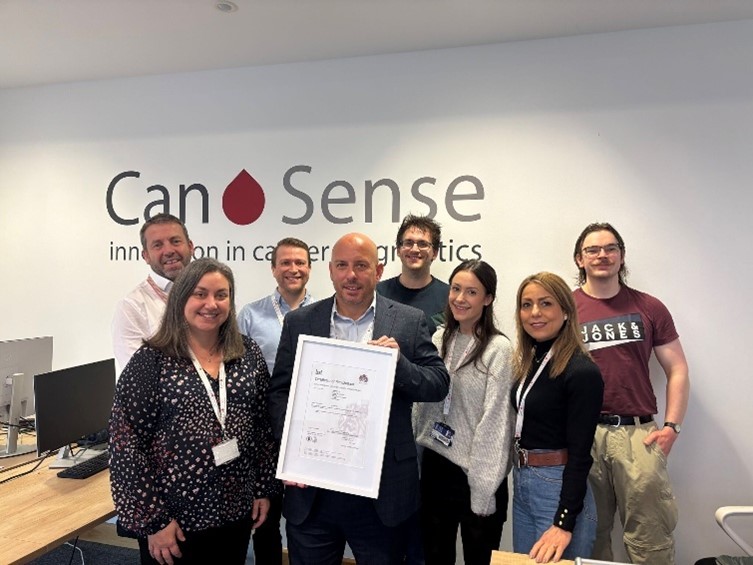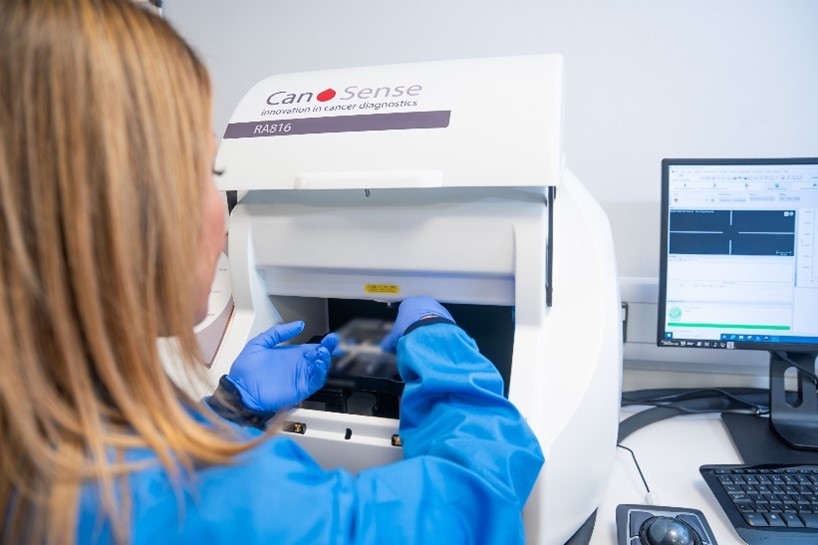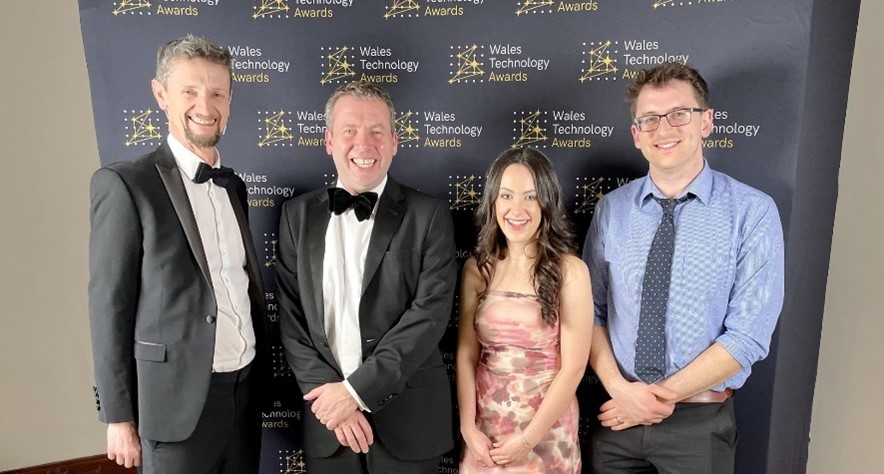CanSense received funding from the Innovation in Women’s Cancer Accelerator Fund, a collaborative scheme run by the Academy of Medical Sciences and Life Sciences Hub Wales, providing seed funding and support to develop innovative solutions that enhance outcomes and experience for women affected by cancer.

At CanSense, we’re all deeply passionate about reshaping how women’s cancers are diagnosed, starting with earlier detection, minimally invasive testing, and real patient involvement.
Thanks to funding from the Innovation in Women’s Cancer Accelerator Fund, we’ve launched an ambitious public and patient involvement (PPI) project focussed on developing a novel blood test (liquid biopsy) for the early detection of ovarian and endometrial cancers.
Our work is not just about innovation in diagnostics, it’s also about empowering patients, including their voice in research, engaging healthcare professionals, and ensuring our solutions are truly fit for real-world clinical use.
It is recognised that underserved groups face numerous inequalities in cancer detection and diagnosis leading to a higher chance of late-stage diagnosis. We believe that understanding and eliminating barriers to early detection in disadvantaged groups is essential to make outcomes equitable.
We’re proud to share the progress we’ve made to date and outline what’s next on our journey toward improving outcomes in women’s cancer care - something we feel gets overlooked in healthcare.

Why early detection in women’s cancers matters to us
Ovarian and endometrial cancers are often diagnosed too late. Their symptoms are frequently vague, and current screening tools are limited or simply non-existent. The consequences are devastating; late-stage diagnosis significantly lowers survival rates and limits treatment options.
Building on the success of our current liquid biopsy blood test for colorectal cancer, we’re now turning our attention to gynaecological cancers using the same special technology. Like our colorectal cancer design, patient and healthcare professional feedback will shape the design and delivery of this test from the get-go.
A patient-centred approach funded by innovation
The support from the Innovation in Women’s Cancer Accelerator Fund has given us an opportunity to design a PPI-focussed project structured around six core work packages, delivered over a six-month timeline.
Since winning the award, we have gained ethical approval from the Swansea University Research Ethics Committee and are currently recruiting patients for the PPI and Focus groups with support of third sector organisations who work with seldom heard and disadvantaged groups.
What’s next?
As we move into the final phase of the project, we’re mainly focussed on:
- Completing interviews and data analysis
- Finalising our PPI impact report
- Drafting our first peer-reviewed publication
- Presenting findings at a national healthcare conference
We hope and anticipate that these milestones will prepare us for the next stage: clinical trials, with a test design grounded in what patients and professionals actually need.
Meet the team making this a reality
Our project brings together a multi-disciplinary team from academia, healthcare, and industry:
- NHS Clinicians such as out Chief Clinical Director, Professor Dean Harris, who provides insight into diagnostic pathways and implementation within existing care models.
- CanSense’s scientist and PhD researcher, Nerissa Thomas - embedded at Swansea University, leading in data collection, analysis, and co-ordination.
- Swansea University academic, Dr Ashra Khanom, contributes experience and knowledge in public engagement, underserved communities, and policy impact.
Together, our team ensures the test is clinically relevant, scientifically sound, and fully informed by lived experience - we feel people are at the heart of what we do, so real-life experiences are particularly important to us at CanSense.

Our collaborative approach to innovation in cancer diagnostics
Our work is gratefully powered by an extensive network of collaborators and strategic partners that include:
- Wales Cancer Network – Supporting test integration across NHS Wales, with a secured Letter of Intent.
- Nonacus – Clinical laboratory processing and validation partner.
- CEDAR (Cardiff and Vale UHB / Cardiff University) – Supporting evidence-based assessment and health technology appraisal.
- Renishaw – Providing precision engineering tools for laboratory and assay performance.
These proud partnerships are just some of the collaborators who provide incredible strength and credibility to CanSense’s mission.
Delivering genuine impact for women’s health
Our project is designed to deliver several meaningful outputs:
- Recommendations to inform future clinical trials based on real patient feedback.
- Implementation insights to support NHS adoption and practical use in clinical settings.
- Data on diversity and access to help reduce disparities in cancer diagnosis and the outcomes
Ultimately, the goal is to accelerate the impact of our early detection test, not just through clinical validation, but also through real-world usability and acceptance.
Our plans for this year
Our journey to our current position demonstrates the transformative power of well-targeted, collaborative funding. The Innovation in Women’s Cancer Accelerator Fund helped us to start strong, stay focussed, and work inclusively, and we’re really excited by the potential of similar schemes in 2025/26.
We enthusiastically encourage other innovators, research teams, and clinicians to consider applying! Patient-led research is not just more ethical, it’s more effective.
Join us in shaping the future of cancer detection
At CanSense, we are passionate about early detection as it saves lives, and believe that innovation must be grounded in the experiences of those it serves. We’re grateful to Life Sciences Hub Wales and the Academy of Medical Sciences for helping us take meaningful steps toward transforming how ovarian and endometrial cancers are diagnosed in the UK.
To learn more about our work or get involved, visit CanSense – Innovation in cancer diagnostics or follow us on LinkedIn.
Demi has been the Operations Assistant for CanSense since September 2023, working closely with the CEO and Core Team to manage general workflows and ensure all operations run smoothly. She also leads on their social media, marketing, and website – passionately trying to represent the core values that define CanSense.

